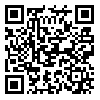Volume 1, Issue 1 (3-2016)
فصلنامه تحقیقات بنیادین علوم انسانی 2016, 1(1): 83-114 |
Back to browse issues page
Download citation:
BibTeX | RIS | EndNote | Medlars | ProCite | Reference Manager | RefWorks
Send citation to:



BibTeX | RIS | EndNote | Medlars | ProCite | Reference Manager | RefWorks
Send citation to:
Goudarzi G. Prioritizing the Requirements for the Transformation Management in the Humanities Based on the Islamic-Iranian Strategic Management. فصلنامه تحقیقات بنیادین علوم انسانی 2016; 1 (1) :83-114
URL: http://frh.sccsr.ac.ir/article-1-24-en.html
URL: http://frh.sccsr.ac.ir/article-1-24-en.html
Associate professor in Imam Sadiq University
Abstract: (4570 Views)
Abstract
‘Islamic Humanities’ is a compound term used for producing knowledge of the humanities from the religious sources and value propositions; it has both opponents and proponents. Relying on the fact that the knowing human as the centerpiece of the Islamic humanities using revelation and the Qur'an is not only possible but also necessary, some emphasize the steering power of producing them. On the contrary, presenting the theory of neutral nature of science and the impossibility of hypothesizing value propositions, some are opposed to Islamic humanities, but the truth is that the humanities determine the basic principles of the ruling and values of communities by offering a variety of discussions on the issues related to human and his existential realms such as, the origin of life, the route and destination, the end of the world, and so forth. Thus if the humanities are founded on the principles of secularism, their output will be very different from the religious foundations and value principles. On the other hand, the problem that is posed along with "the Islamic-Iranian model of progress", is a transformation management in the humanities, and a move to produce the Islamic humanities. Different patterns for transformation have been presented which are mainly macro and conceptual ones; from a strategic perspective, a precise and operational model is needed for the implementation of this transformation. Thus studying the issue of the Islamic humanities, and emphasizing the fundamental assumptions of the model of "a messianic strategic management" (which is a model of an Islamic-Iranian strategic management), the present paper seeks to identify and prioritize the requirements for the transformation management in the humanities
‘Islamic Humanities’ is a compound term used for producing knowledge of the humanities from the religious sources and value propositions; it has both opponents and proponents. Relying on the fact that the knowing human as the centerpiece of the Islamic humanities using revelation and the Qur'an is not only possible but also necessary, some emphasize the steering power of producing them. On the contrary, presenting the theory of neutral nature of science and the impossibility of hypothesizing value propositions, some are opposed to Islamic humanities, but the truth is that the humanities determine the basic principles of the ruling and values of communities by offering a variety of discussions on the issues related to human and his existential realms such as, the origin of life, the route and destination, the end of the world, and so forth. Thus if the humanities are founded on the principles of secularism, their output will be very different from the religious foundations and value principles. On the other hand, the problem that is posed along with "the Islamic-Iranian model of progress", is a transformation management in the humanities, and a move to produce the Islamic humanities. Different patterns for transformation have been presented which are mainly macro and conceptual ones; from a strategic perspective, a precise and operational model is needed for the implementation of this transformation. Thus studying the issue of the Islamic humanities, and emphasizing the fundamental assumptions of the model of "a messianic strategic management" (which is a model of an Islamic-Iranian strategic management), the present paper seeks to identify and prioritize the requirements for the transformation management in the humanities
Keywords: Islamic humanities, transformation management, Islamic-Iranian model of progress, messianic strategic management
Send email to the article author
| Rights and permissions | |
 |
This work is licensed under a Creative Commons Attribution-NonCommercial 4.0 International License. |






